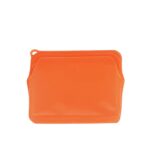Teaching kids about sustainability and environmental responsibility is crucial for creating a more sustainable future. As parents, it is our responsibility to educate and guide our children on how to live in a more environmentally-friendly way. In this article, we will explore some sustainable living habits for kids that parents can implement at home.
Reduce, Reuse, and Recycle
The three R’s (reduce, reuse, and recycle) are a fundamental principle of sustainability. Teaching kids about these concepts at a young age can help them develop a lifelong commitment to conservation and waste reduction.
Encourage kids to reduce their consumption of single-use items, such as disposable plastic water bottles and disposable plates. Instead, provide them with reusable alternatives, such as a water bottle or a stainless steel container.
Reusing items instead of discarding them is another essential habit to teach kids. For example, they can reuse old t-shirts to make a bag or a pair of shorts. This not only reduces waste but also helps kids learn how to be creative and resourceful.
Recycling is another habit that is easy to teach kids. Make sure they understand the importance of recycling and how it helps the environment. Provide a recycling bin in an accessible place and encourage them to put their recyclable materials in it.
Conserve Water and Energy
Water and energy conservation is another important habit to teach kids. Encourage them to turn off lights, appliances, and water when not in use. Show them how to conserve water by taking shorter showers and fixing any leaks.
In addition, teach them about the importance of using energy-efficient appliances and light bulbs. This will not only reduce your household’s carbon footprint but also help you save money on energy bills.
Eat Sustainable Foods
Eating sustainable foods is a great way for kids to learn about the impact of their food choices on the environment. Encourage them to eat a variety of fruits and vegetables and reduce their consumption of meat. Eating a plant-based diet not only helps the environment but also has health benefits.
Another way to teach kids about sustainable food choices is by growing their own food. Start a vegetable garden or a small herb garden in your backyard. This will not only provide kids with fresh produce but also teach them about the importance of sustainable agriculture.
Conclusion
Sustainability is an important issue that affects us all, and it’s never too early to start teaching kids about environmental responsibility. By implementing sustainable living habits at home, parents can help their kids develop a lifelong commitment to conservation and waste reduction.








